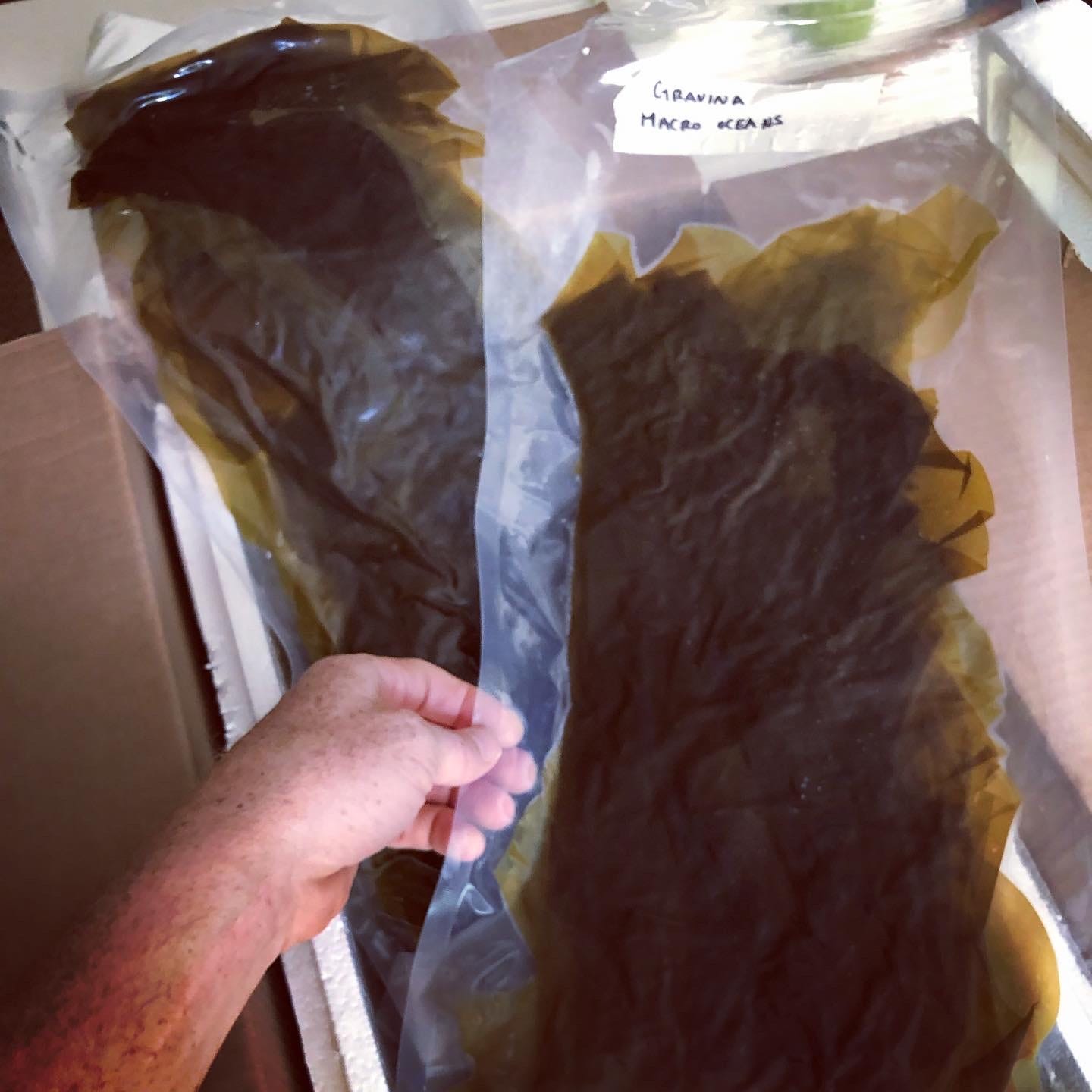Ready, set, biorefine
A quick update from Macro Oceans
Test tubes are rarely sexy, except perhaps when they are full of kelp. We’ve been hard at work in the lab and thus haven’t had much time for the newsletter. So instead of sharp analysis we thought we’d send this brief update and a few pictures for you to enjoy.
Working Hard @ AgStart
In May we moved into AgStart, a brand new 4,800 sqft co-working lab space in Woodland, CA. It is fully stocked with state of the art equipment and lots of awesome food and ag startups such as Pheronym (producing nematode pheromones) and TurtleTree (cell-based milk). It is a perfect home for us as we expand our wet lab operations.
Now that Alaska’s summer 2021 kelp harvest is behind us, we’ve received ~50lb of beautiful Saccharina latissima from our farmer partners. It’s safely stored in our freezer in the lab, ready for testing. As usual when we start working with new biomass samples, we are running a full spectrum of compositional analyses. This will provide a great dataset of the wonderful bioactive compounds, essential nutrients and minerals.
Day to day, we are hard at work on optimizing our biorefinery process to deliver a host of interesting bioproducts. Achieving high yields with low costs is not easy. We’re innovating on everything from storing biomass, to working in saline environments and applying the latest green, sustainable chemistries.
Kelpify America
These days it’s hard not to notice the vibrant and emerging US kelp ecosystem. We are excited to see all the progress from different groups and thought we’d share a few kelp resources worthy of your attention:
ARPA-E Mariner Annual Review - a round up of all the progress made over the past 12 months
Alaska Mariculture Task Force - Final Report to Governor Dunleavy - a clear statement of ambition from what is likely to be the nation’s super producing state
In hotter climate, ‘zombie’ urchins are winning and kelp forests are losing - a reminder of the very tangible threats to our coastal ecosystems
Population genetics of sugar kelp throughout the northeast US using genome-wide markers - this pioneering study shows how we can maintain genetic diversity whilst also improving varieties through selective breeding



